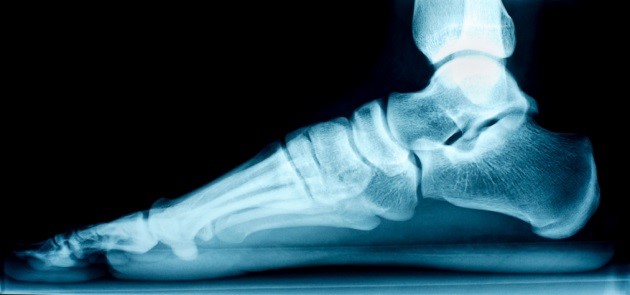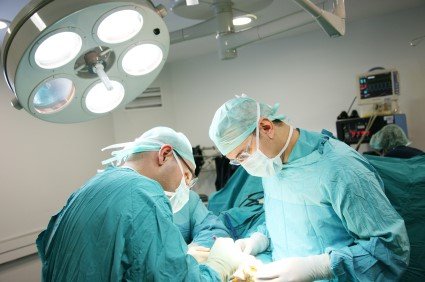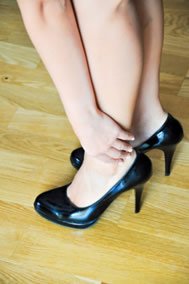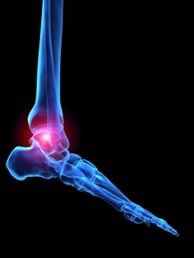September 2016
Flat Feet Risk Factors
 Flat foot is a condition commonly caused by a dysfunction of the posterior tibial tendon, a tendon of the ankle. Other factors that can increase the risk of flat feet include, “high blood pressure, obesity, diabetes, previous surgery or trauma, rheumatoid arthritis, and exposure to steroids.” Older individuals as well as previous injury to the area can lead to the development of flatfoot. Seek medical attention to ensure proper prevention of the progression of the condition.
Flat foot is a condition commonly caused by a dysfunction of the posterior tibial tendon, a tendon of the ankle. Other factors that can increase the risk of flat feet include, “high blood pressure, obesity, diabetes, previous surgery or trauma, rheumatoid arthritis, and exposure to steroids.” Older individuals as well as previous injury to the area can lead to the development of flatfoot. Seek medical attention to ensure proper prevention of the progression of the condition.
Flatfoot is a condition many people suffer from. If you have flat feet, contact one of our podiatrists of University Foot and Ankle Center, L.L.C. Our doctors will assist you with all of your podiatric concerns.
What are Flat Feet?
Flat feet are a condition in which the arch of the foot is depressed and the sole of the foot is almost completely in contact with the ground. Standing about 20-30% of the population generally has flat feet because their arch never formed during growth.
Conditions & Problems:
Having flat feet makes it difficult to run or walk because of the stress placed on the ankles.
Alignment – The general alignment of your legs can be disrupted, because the ankles move inward which can cause major discomfort.
Knees – if you have complications with your knees, flat feet can be a contributor to arthritis in that area.
Symptoms:
Pain around the heel or arch area
Trouble standing on the tip toe.
Swelling around the inside of the ankle.
Flat look to one or both feet.
Having your shoes feel uneven when worn
Treatment:
If you are experiencing pain and stress on the foot you may weaken the posterior tibial tendon, which runs around the inside of the ankle.
If you have any questions please feel free to contact our office located in East Brunswick and Monroe Township, NJ. We offer the newest diagnostic and treatment technologies for all your foot and ankle needs.
Jacob Maxwell Undergoes Foot Surgery
 Wisconsin’s starting right tackle, Jacob Maxwell, recently admitted that he suffered an injury in his left foot. He revealed that he underwent surgery to repair a stress fracture in his foot. Maxwell wasn’t cleared for workouts until three weeks prior to camp. He states that this was a setback, however he is continuing to get stronger and better again.
Wisconsin’s starting right tackle, Jacob Maxwell, recently admitted that he suffered an injury in his left foot. He revealed that he underwent surgery to repair a stress fracture in his foot. Maxwell wasn’t cleared for workouts until three weeks prior to camp. He states that this was a setback, however he is continuing to get stronger and better again.
Foot surgery is sometimes necessary to fix a foot ailment. To learn more, contact one of our podiatrists of University Foot and Ankle Center, L.L.C. Our doctors can provide the care you need to keep you pain-free and on your feet.
When Is Surgery Necessary?
Foot and ankle surgery is generally reserved for cases in which less invasive, conservative procedures have failed to help with the problem. Some of the cases in which surgery may be necessary are:
- Removing foot deformities like bone spurs and bunions
- Severe arthritis that has caused bone issues
- Cosmetic reconstruction
What Types of Surgery Are There?
The type of surgery you receive will depend on the nature of the problem you have. Some of the possible surgeries include:
- Bunionectomy for painful bunions
- Surgical fusion for realignment of bones
- Neuropathy decompression surgery to treat nerve damage
Benefits of Surgery
Although surgery is usually a last resort, it can provide more complete pain relief compared to non-surgical methods and may allow you to finally resume full activity.
Surgical techniques have also become increasingly sophisticated. Techniques like endoscopic surgery allow for smaller incisions and faster recovery times.
If you have any questions please feel free to contact our office located in East Brunswick and Monroe Township, NJ. We offer the newest diagnostic and treatment technologies for all your foot and ankle needs.
High Heels May Negatively Impact Foot Health
 A study published by the Journal of Applied Physiology has determined that long-term high heel use can have detrimental effects on the legs’ muscles, such as muscle strain and muscle fatigue. According to the study’s abstract, long-term high heel use has been found to “shorten medial gastrocnemius muscle fascicles and increase Achilles tendon stiffness.” The study’s results are consistent with reports that high heel wearers often experience discomfort, pain, and tiredness. It also suggests that “long-term high heel use may compromise muscle efficiency in walking”.
A study published by the Journal of Applied Physiology has determined that long-term high heel use can have detrimental effects on the legs’ muscles, such as muscle strain and muscle fatigue. According to the study’s abstract, long-term high heel use has been found to “shorten medial gastrocnemius muscle fascicles and increase Achilles tendon stiffness.” The study’s results are consistent with reports that high heel wearers often experience discomfort, pain, and tiredness. It also suggests that “long-term high heel use may compromise muscle efficiency in walking”.
High heels have a history for causing foot and ankle problems. If you have any concerns about your feet or ankles, contact one of our podiatrists of University Foot and Ankle Center, L.L.C. Our doctors can provide the care you need to keep your pain free and on your feet.
Effects of High Heels on the Feet
High heels are popular shoes among women because their style and societal appeal. Despite this, they can still cause many health problems if worn too frequently.
What parts my body will be affected by high heels?
- Ankle Joints
- Achilles Tendon – may shorten and stiffen with prolonged wear
- Balls of the Feet
- Knees – heels cause the knees to bend constantly, creating stress on them
- Back – they decrease the spine’s ability to absorb shock, which may lead to back pain. Also, the vertebrae of the lower back may compress.
What kinds of foot problems can develop from wearing high heels?
- Corns
- Calluses
- Hammertoe
- Bunions
- Morton’s Neuroma
- Plantar Fasciitis
How can I still wear high heels and maintain foot health?
If you want to wear high heeled shoes, make sure that you are not wearing them every day, as this will help prevent long term physical problems. Try wearing thicker heels as opposed to stilettos to distribute weight more evenly across the feet. Always make sure you are wearing the proper shoes for the right occasion, such as sneakers for exercising. If you walk to work, try carrying your heels with you and changing into them once you arrive at work. Adding inserts to your heels can help cushion your feet and absorb shock. Full foot inserts or metatarsal pads are available.
If you have any questions please feel free to contact our offices located in East Brunswick and Monroe Township, NJ. We offer the newest diagnostic tools and technology to treat your foot and ankle needs.
Study Could Predict Susceptibility of Rheumatoid Arthritis
 Rheumatoid arthritis is an autoimmune disorder, or a condition in which the body attacks itself. Bacteria in the gut has been found to predict susceptibility of rheumatoid arthritis. Experts were able to study microbes that were normally low in healthy individuals, but high in people with rheumatoid arthritis. This study could be used to predict if someone is likely to have rheumatoid arthritis in the future.
Rheumatoid arthritis is an autoimmune disorder, or a condition in which the body attacks itself. Bacteria in the gut has been found to predict susceptibility of rheumatoid arthritis. Experts were able to study microbes that were normally low in healthy individuals, but high in people with rheumatoid arthritis. This study could be used to predict if someone is likely to have rheumatoid arthritis in the future.
Because RA affects more than just your joints, including the joints in your feet and ankles, it is important to seek early diagnosis from your podiatrist if you feel like the pain in your feet might be caused by RA. For more information, contact one of our podiatrists of University Foot and Ankle Center, L.L.C. Our doctors can provide the care you need to keep your pain free and on your feet.
What Is Rheumatoid Arthritis?
Rheumatoid Arthritis (RA) is an autoimmune disorder in which the body’s own immune system attacks the membranes surrounding the joints. Inflammation of the lining and eventually the destruction of the joint’s cartilage and bone occur, causing severe pain and immobility.
Rheumatoid Arthritis of the Feet
Although RA usually attacks multiple bones and joints throughout the entire body, almost 90 percent of cases result in pain in the foot or ankle area.
Symptoms
- Swelling & pain in the feet
- Stiffness in the feet
- Pain on the ball or sole of feet
- Joint shift and deformation
Diagnosis
Quick diagnosis of RA in the feet is important so that the podiatrist can treat the area effectively. Your doctor will ask you about your medical history, occupation, and lifestyle to determine the origin of the condition. Rheumatoid Factor tests help to determine if someone is affected by the disease.
If you have any questions, please feel free to contact our offices located in in East Brunswick and Monroe Township, NJ. We offer the newest diagnostic and treatment technologies for all your foot care needs.
Blog Archives
- April 2024
- March 2024
- February 2024
- January 2024
- December 2023
- November 2023
- October 2023
- September 2023
- August 2023
- July 2023
- June 2023
- May 2023
- April 2023
- March 2023
- February 2023
- January 2023
- December 2022
- November 2022
- October 2022
- September 2022
- August 2022
- July 2022
- June 2022
- May 2022
- April 2022
- March 2022
- February 2022
- January 2022
- December 2021
- November 2021
- October 2021
- September 2021
- August 2021
- July 2021
- June 2021
- May 2021
- April 2021
- March 2021
- February 2021
- January 2021
- December 2020
- November 2020
- October 2020
- September 2020
- August 2020
- July 2020
- June 2020
- May 2020
- April 2020
- March 2020
- February 2020
- January 2020
- December 2019
- November 2019
- October 2019
- September 2019
- August 2019
- July 2019
- June 2019
- May 2019
- April 2019
- March 2019
- February 2019
- January 2019
- December 2018
- November 2018
- October 2018
- September 2018
- August 2018
- July 2018
- June 2018
- May 2018
- April 2018
- March 2018
- February 2018
- January 2018
- December 2017
- November 2017
- October 2017
- September 2017
- August 2017
- July 2017
- June 2017
- May 2017
- April 2017
- March 2017
- February 2017
- January 2017
- December 2016
- November 2016
- October 2016
- September 2016
- August 2016
- July 2016
- June 2016
- May 2016
- April 2016
- March 2016
- February 2016
- January 2016
- December 2015
- November 2015
- October 2015
- September 2015
- August 2015
- July 2015
- June 2015
- May 2015
- April 2015
- March 2015
- February 2015
- January 2015
- December 2014
- November 2014
- October 2014
- September 2014
- August 2014
- July 2014




